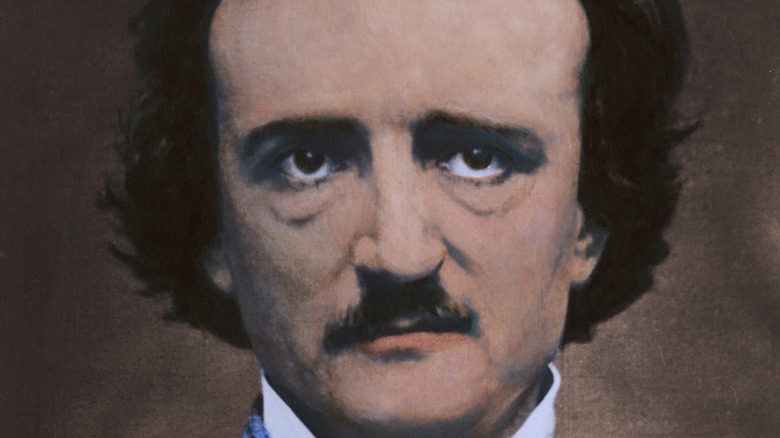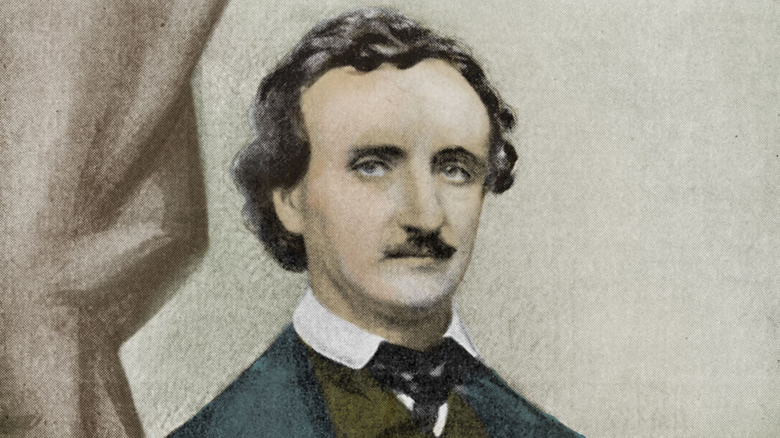The Truth About Edgar Allan Poe's Struggles With Alcohol Addiction
Edgar Allan Poe is one of the most influential and well-respected writers in American history, yet his life was far from pleasant. One of the early masters of terror, Poe's life was its own horror story, as he battled with constant tragedy and his own personal vices and mental health issues. One of the author's more debilitating problems was his long-term battle with alcoholism (via Mental Floss).
Poe's overt fondness of the bottle saw him fired from his position as editor of the Southern Literary Messenger, a magazine to which he had contributed several stories, poems, and articles. The sudden removal of financial security began a negative feedback loop, where the extra anxiety only fueled his addiction more. Poe's mother died of tuberculosis when he was just a toddler, and the same disease claimed his wife in 1847. Poe once again turned to alcohol as a coping mechanism as his addiction worsened. Though the last few months of his life would see Poe join the prohibitionist temperance movement, perhaps in an attempt to gain control over his alcoholism, it was an issue that followed him into his early grave.
Poe would binge drink
According to EAPoe.org, rumors that the Baltimore-based writer was also addicted to drugs like opium are largely unfounded. The confusion and assumptions stemmed from Poe's characters often having opium addictions, and coupled with the commonly-held misconception that strange, highly imaginative writing is a symptom of drug use, many thought Poe took as much pleasure in opium as his characters. However, this is almost certainly not the case. The only time he admitted to using opium was part of a suicide attempt.
Alcohol abuse was common in the Poe family, however. Both his father and brother were consumed by drink, although their addictions were more of a steady consumption, while Poe was prone to binges and then long periods of sobriety. Poe would drink heavily for a few days, then spend the rest of the week confined to his bed, then go months or years without sipping another drop of alcohol. There were constant promises during these drink-free periods that he was done with alcohol for good, an all-too-familiar claim from someone who clearly had a problem that was only made worse by tragedy, and there was certainly no shortage of that in the writer's life.

